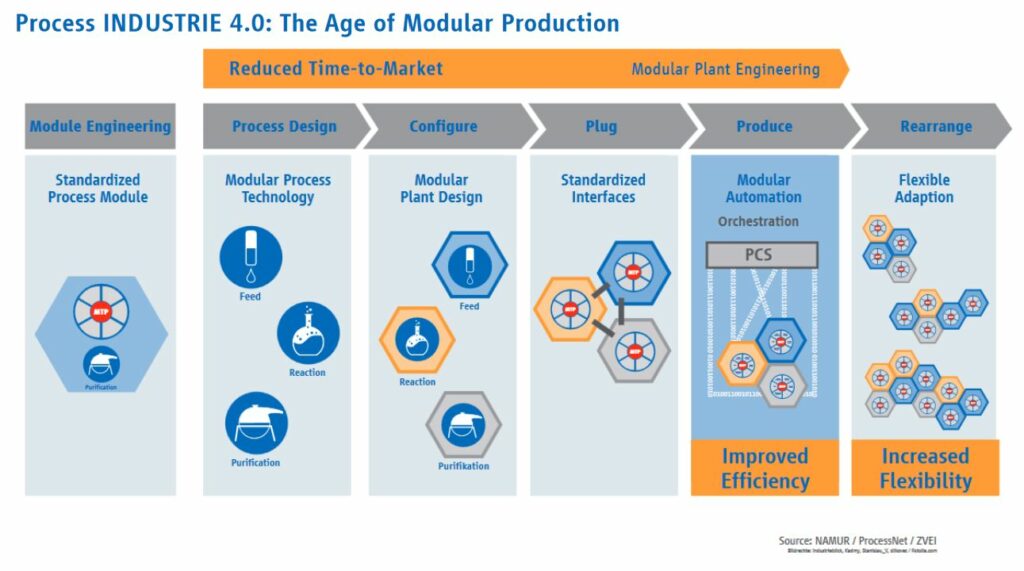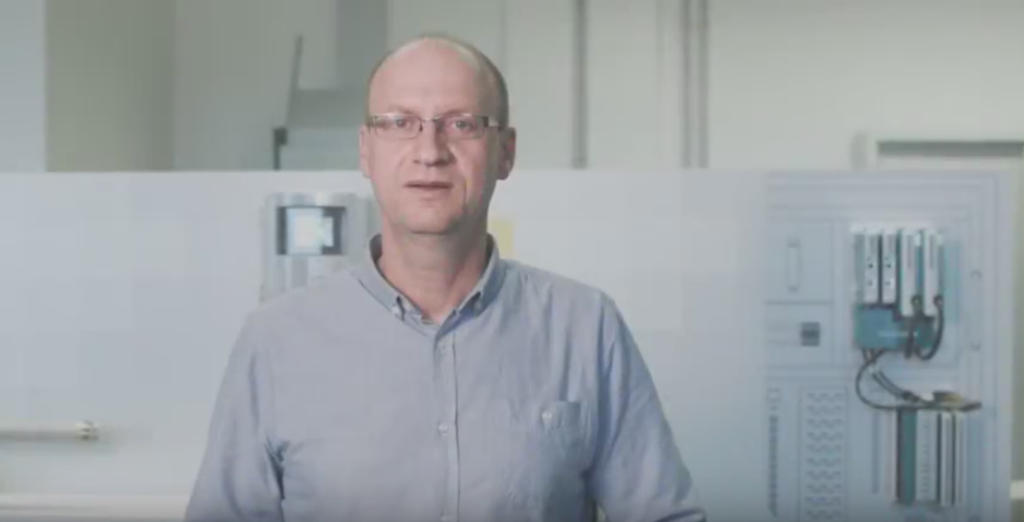Yokogawa in partnership with NAMUR, PROCESSNET, ZVEI members will showcase our commitment to Modular Production at Hannover Messe 2018 under the topic “Integrated Industry – Connect & Collaborate“.
Someway or other everyone should have come across the terms “Modular Automation”,”Modular Production” Yokogawa’s “Module Based Engineering” with Automation Design Suite. What are the differences and relations between these terms?
Modular Production
[ot-caption title=”Process INDUSTRIE 4.0: The Age of Modular Production” url=”https://www.yokogawa.com/eu/blog/chemical-pharma/app/uploads/2017/04/HMI_Modular_Production.jpg”]
More information you find here.
Keep modularity in mind
Modular Design or “Modularity in design” exists already in many fields such as consumer market (kitchen, furnitures, computer hardware etc.) to software programming and also in some industries (automobile). Process industry is also looking to reap the benefits of Modular Design (refer to image above) through “Modular Production” in process plants. To achieve Modular Production the Mechanical Design, Process Design and the Automation Design should be designed with modularity in mind. The design process from the automation perspective, its engineering and design is “Modular Automation” which is the basic principle of Yokogawa’s Automation Design Suite (AD Suite) and Module Based Engineering. Create generic class modules, instantiate them based on your plant structure to create your application.
NAMUR Module Type Package (MTP)
What about the package units? Or other modular equipments with its own control system? How can you integrate them fast into your plant without reengineering in the control system. Here arises the necessity of a standard interface specific for Modular Automation where the challenge is the interoperability of different modules from different vendors together as one production plant. This need is addressed by NAMUR Module Type Package (MTP), a standardised interface which will provide all the necessary information and services for the interoperability of modules irrespective of the vendor.
The MTP consists of
- Human Machine Interface (HMI),
- Alarm Management,
- Safety & Security,
- State based control and
- Maintenance information
in machine readable AutomationML data format. The NAMUR MTP taskforces are working on defining the sturcture of MTP and the progress is quite promising towards a full Modular Production.
The best candidate: Automation Design Suite
Now to Yokogawa’s “Module based engineering” and its advantages together with Modular Automation. The contents of a class module in AD Suite and the contents of MTP based on AutomationML is ideologically similar, just different on the application level which means a relatively easy adaptation from MTP to Class module is already achievable which makes AD Suite the best candidate also the ochestration of the modules from the DCS. Other standard functionalities in AD Suite such as integrated Change Management and Automatic Document Generation are addtional values together with the benefits of Modular Production. The work process of integrating a new module to the system can be done using Change Management as a controlled procedure with complete audit trail and related “as built” documents can be automatically updated.
[ot-caption title=”Relation between AD Suite class module and MTP Structure” url=”https://www.yokogawa.com/eu/blog/chemical-pharma/app/uploads/2017/04/Bild1-1.png”]
Live demo at Hannover Messe
Yokogawa’s part in this intiative and the progress we have made implementing MTP will be showcased in Hannover Messe. The live demo shows how HMI graphics from another vendor can be imported in Yokogawa’s controller without any additional engineering and can visualize live data from the module in Yokogawa system using MTP.
We look forward to having you in our NAMUR/PROCESSNET/ZVEI partner booth at Hall 11, D44. Until then!




